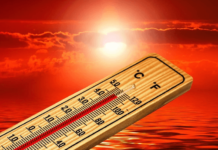Published online 16 October 2007.
cassiodorusblog.wordpress.com
This is a review of Naomi Klein’s The Shock Doctrine, a detailed, journalistic history of neoliberalism which emphasizes its connection to “shock therapy,” torture, and other means of tearing down people and society so that they can be rebuilt along the lines of “perfect,” ideological models. My review differs from others in that it focuses upon important themes and close analysis of key quotes within the book.
Kudos to Eirik Raude, Susan G, MizC and itsmitch
The Shock Doctrine
The Rise of Disaster Capitalism
By Naomi Klein
Metropolitan Books, Henry Holt and Company
New York, 2007
This book fingers neoliberalism so thoroughly that, after reading it, you’ll think of Milton Friedman and the rest of the neoliberals as a collection of sadistic mad scientists, experimenting on the world with an abandon which we would normally attribute to the villains of James Bond movies.
The Shock Doctrine is a book written as journalistic expose, yet it goes further than most of its kind in presenting us with a full-fledged history of neoliberalism, from its ideological roots in the Mont Pelerin Society to the present moment.
Now, there are plenty of books written about neoliberalism. Dumenil and Levy’s Capital Resurgent, for instance, or David Harvey’s book (mentioned in Lenin’s Tomb), as well as (for those who know my work here) Harry Shutt’s The Trouble With Capitalism. But this is one of the best, because it documents the “neoliberal experience” so thoroughly that it will be difficult to make promises of neoliberal paradise seem real afterward.
Now, I recognize that there are plenty of reviews of The Shock Doctrine already out on the Internet and in the published presses; I wrote this as a foretaste of the review I’m hoping to get published, and to try to convey the sense of hidden riches located within the Klein book, a sense I’m not sure is fully conveyed in other reviews.
We start this book reading about corporations attempting to profit from the tragedy of Hurricane Katrina (one comment from a bystander is priceless: “they’re not blind: they’re evil. They see just fine.”). We move swiftly in Klein’s narrative to Milton Friedman’s assessment of Katrina: Katrina, he suggests, is an opportunity to impose a voucher system upon New Orleans’ schools. The introduction to The Shock Doctrine reveals neoliberalism, as a particular mode of capitalist development, was originally theorized by Milton Friedman, and that, moreover, the:
…idea of exploiting crisis and disaster has been the modus operandi of Milton Friedman’s movement from the very beginning – this fundamentalist form of capitalism has always needed disasters to advance. (9)
So, for Klein, neoliberal capitalism is disaster capitalism, and this process of moving into disaster areas in order to destroy livelihoods while sending fat paychecks to corporate overlords elsewhere is integral to its development. It’s not merely a capitalist variant in which the financial sector has hypertrophied, or in which dollar hegemony prevails. Now, mind you, Klein is no economist. But she makes a persuasive case, and in that regard I’d like to hear from economists who have read this book on what they think about it.
There are three main aspects to neoliberalism as Klein describes it: disaster capitalism, shock therapy, and torture. The first chapter is about the third of these, and Klein spends some paper and ink describing the history of torture as it was devised by psychologists and implemented by the CIA. She interviews torture victims and reviews the history of Dr. Ewen Cameron, CIA employee and electroshock pioneer.
The second chapter reviews the activities of the “Berkeley Mafia,” who attempted to impose a version of crony capitalism upon Indonesia through the activities of mass-murderer Suharto. But the real birthplace of neoliberalism, we are told in chapter 3, is Chile in 1973, with Pinochet. Here, and in her coverage of Argentina, Klein connects the imposition of neoliberal “shock therapy” with the tortures visited upon the Left in both countries during the periods of dictatorial rule in which neoliberalism was imposed. Now, Chile is commonly trumpeted as a neoliberal economic success. But has it really worked? Klein says no:
The country’s period of steady growth that is held up as proof of its miraculous success did not begin until the mid-eighties – a full decade after the Chicago Boys implemented shock therapy and well after Pinochet was forced to make a radical course correction. That’s because in 1982, despite its strict adherence to Chicago doctrine, Chile’s economy crashed: its debt exploded, it faced hyperinflation once again and unemployment hit 30 percent – ten times higher than it was under Allende. The main cause was that the piranhas, the Enron-stile financial houses that the Chicago Boys had freed from all regulation, had bought up the country’s assets on borrowed money and run up an enormous debt of $14 billion. (85)
As Klein said later in an interview, these people don’t really believe in the ideology they promote: “Ideology serves as sort of a cover story to rationalize massive personal enrichment.” And, as she hints at now and then through the book and especially in the conclusion, neoliberal economics doesn’t work in the long run.
The connections between murder, torture, South American dictatorships, and the Chicago School are tightened in Chapter 4, with Chapter 5 devoted to the propaganda effort to dissociate these things. From these chapters, constituting the first two parts of the book, Klein’s narrative then flies outward, into a discussion of the Falklands war as a vehicle for Thatcher’s privatizations, and of IMF “shock therapy” as visited upon South America and Eastern Europe post-1989. Chapter 8 discusses how the Chicago School took hold of the IMF and the World Bank, and how “structural adjustment programs” were used to force the national economies of debtor nations to subscribe to neoliberal prescriptions. The recipe used was simple: manipulate commodity prices to force national economies into crisis, offer IMF loans as the price of economic stability, and force through “structural adjustment” and corporate penetration as the price of the loans. Chapter 10 focuses upon the disaster in South Africa; after having defeated the apartheid regime, the ANC was made to kneel before the IMF and the GATT. The result of it all is that, though the majority of South Africa is now free, the inequities of wealth have increased. Cast off the political chains, fasten the economic ones.
Chapter 11 then shows how neoliberalism was imposed upon Russia. Gorbachev wanted to integrate the Soviet Union into the world economy as a sort of Sweden; but he was told at the G-7 summit in London in 1991 that if he did not impose “shock therapy” upon his country immediately, they would “sever the rope and let him fall” from power. (219) This is in fact what happened. The Russia chapters detour through a long narrative about Jeffrey Sachs until Klein’s list of neoliberal disasters picks up again with Chapter 13’s discussion of the 1997 economic collapse in Asia.
The next few chapters, comprising Part 5 of the book, are about the Bush administration’s transformation of the US state into a corporate complex in which, in Klein’s words, “public service is reduced to little more than a reconnaissance mission for future work in the disaster capitalism complex,” as government has at this point become a conduit for corporate profit. Part 6 is about Iraq as a “disaster capitalism” war, in which the troop strength is kept low to cut costs while the Iraqi economy is outfitted for corporate plunder. This, once again, is connected to torture, this time in Abu Ghraib:
One factor that made the surge in torture tactics all but inevitable was Donald Rumsfeld’s determination to run the military like a modern, outsourced corporation. He had planned the troop deployment less like a defense secretary and more like a Wal-Mart vice president looking to shave a few more hours from the payroll. Having whittled the generals down from their early requests for 500,000 troops to fewer than 200,000, he still saw fat to trim: at the last minute, satisfying his inner CEO, he cut tens of thousands more troops from the battle plans. (368)
The remaining troops were like frustrated teachers in overcrowded and rebellious classrooms, in which order must be imposed through terror tactics.
The next chapters, Chapter 19 and 20, are about the rebellion in Sri Lanka, the south Asian tsunami of December 2004, and Hurricane Katrina. At this point in reading the book, I was guessing this: the “disaster capitalism” complex does not discriminate between disasters. Any disaster will do, natural, human-caused, or (as was the case with Iraq) intentionally-provoked for fun and profit. The sociological results, Klein concluded, were always the same:
Everywhere the Chicago School crusade has triumphed, it has created a permanent underclass of between 25 and 60 percent of the population. It is always a form a war. (405)
Chapter 21 is about Israel as a sort of “standing disaster apartheid state,” in which, after the dot-com crash, Israel positions itself as a “shopping mall for homeland security technologies.”(435) Thus Israel forms a hub of the “disaster capitalism complex.” But before Klein points this out, she solemnly announces that “disaster capitalism” is not the result of a conspiracy:
An economic system that requires constant growth, while bucking almost all serious attempts at environmental regulation, generates a steady stream of disasters all on its own, whether military, ecological or financial. The appetite for easy, short-term profits offered by purely speculative investment has turned the stock, currency and real estate markets into crisis-creation machines, as the Asian financial crisis, the Mexican peso crisis, and the dot-com collapse all demonstrate. Our common addiction to dirty, nonrenewable energy sources keeps other kinds of emergencies coming: natural disasters (up 430 percent since 1975) and wars waged for control over scarce resources (not just Iraq and Afghanistan but lower-intensity conflicts such as those that rage in Nigeria, Colombia, and Sudan), which in tern create terrorist blowback (a 2007 study calculated that the number of terrorist attacks since the start of the Iraq war had increased sevenfold). (426)
Now, there’s a conclusion to Klein’s tale, in which she endorses “democratic socialism” (450) and details the global revolt against neoliberalism, but I want to conclude this review by looking at the larger implications of Klein’s disavowal of conspiracy theory.
A lot of Klein’s discussion is a detailing of key figures: Milton Friedman, Jeffrey Sachs, Donald Rumsfeld. To a certain extent (besides the occasional interventions of the Clinton administration on the side of neoliberalism), we might allow ourselves to imagine that this is all a Republican conspiracy (with the help, perhaps, of the Conservatives and of New Labour in the UK). No, says Klein, “disaster capitalism” is part of the social set-up in which we find ourselves at the turn of the 21st century. And, if some of the disasters are intentional, this becomes necessary to pre-empt the movements toward democratic socialism (or even social democracy) which would otherwise take neoliberalism’s place:
The dirty secret of the neoliberal era is that these ideas were never defeated in a great battle of ideas, nor were they voted down in elections. They were shocked out of the way at key political junctures. (450)
So this isn’t a conspiracy theory, but rather the beginnings of an explanation of the current situation in political economy, in which, since capitalism itself has become increasingly dangerous and obsessed with the short-term, powerful “shocks” must be applied to allow the system itself (and especially its neoliberal vanguard) to continue to exploit an unwilling public. With The Shock Doctrine, Naomi Klein has created a history of neoliberalism that may be merely journalistic, but which in important ways adds real-life grounding to the analyses compiled by economists, political scientists, sociologists, and world-systems theorists on this topic. At the same time, Klein’s book is relatively quite easy to read when compared with the deliberations of the academics; if we are looking for a text that will motivate people around the world to put an end to neoliberalism, we must employ writing and speaking of the sort that overflows here. Klein takes us through every step of neoliberalism’s triumph, without using academic shorthand.
And, sure, the large blockquote above points to things the global public failed to learn in the 1970s and 1980s, thus why it was not sufficiently capable of resisting neoliberalism in the multitude of diverse countries given in The Shock Doctrine, and elsewhere. For instance, “progressives,” democratic socialists, “liberals,” and other anti-neoliberals have yet to master the economics (and the social dynamics) of an ecologically sustainable society, and this (among other things) makes the public vulnerable to the neoliberals.
And although it doesn’t really get to the economic secret of “disaster capitalism,” The Shock Doctrine does make some firm connections between neoliberal capitalism and the bad end we can see up the road a bit. (The corporations don’t really profit off of the disasters per se, as disasters provide important pretexts for corporate penetration and government subsidy.)











